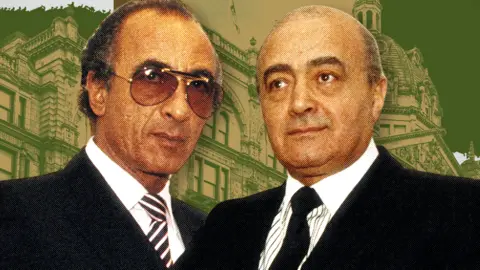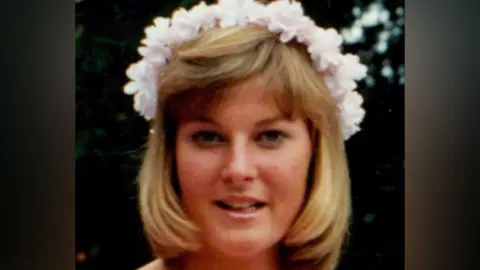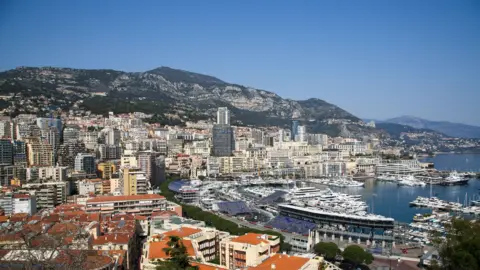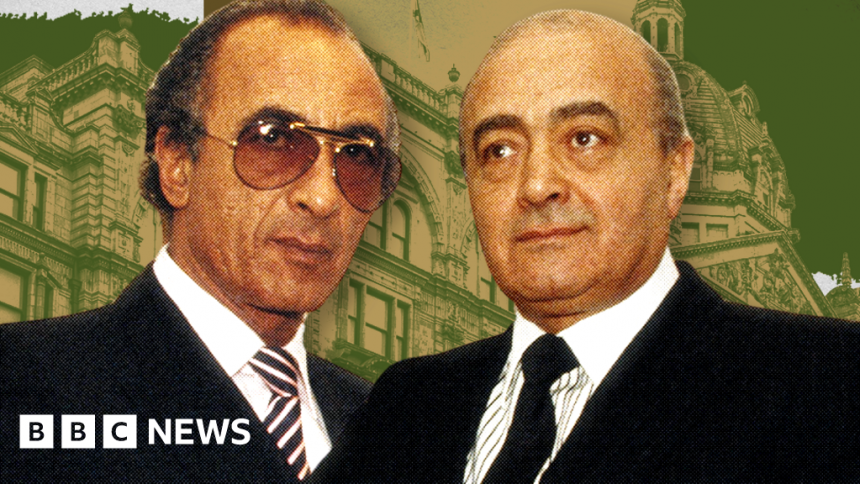Al Fayed’s brother Salah also abused us, women say
 Getty Images / BBC
Getty Images / BBCOne of Mohamed Al Fayed’s brothers also abused women who worked at the Harrods department store, according to three ex-employees who have made allegations including sexual assault and trafficking to the BBC.
The women allege that Salah Fayed abused them in London, the south of France and Monaco between 1989 and 1997. One woman believes she was raped by Salah after she was drugged.
All three women say they were also sexually assaulted or raped by Mohamed Al Fayed, then chairman of the company.
Harrods, which came under new ownership in 2010, said in a statement that the new claims point to the “breadth of abuse” by Al Fayed and “raise serious allegations” against his brother.
Salah Fayed, who died of pancreatic cancer in 2010, was one of three Fayed brothers who purchased the luxury Knightsbridge department store in 1985. Mohamed added the Arabic “Al” prefix to his surname some time in the 1970s.
One of the three women, Helen, has waived her right to anonymity. She was 23 and had been working at her “dream” job in Harrods for almost two years when Mohamed Al Fayed raped her in a Dubai hotel room.
Months later, when Mohamed offered her some personal assistant work with his younger brother, she saw it as an escape route – but instead she says she was drugged by Salah and believes she was then raped by him while unconscious.
“He [Mohamed Al Fayed] shared me with his brother,” she says.
Helen is speaking for the first time, after feeling silenced for 35 years, in part because of a Harrods non-disclosure agreement that she was told to sign.
“They’ve stolen a part of me,” she says. “It’s changed the course of my entire life.”
The BBC has also spoken independently to two other women who say they were abused by both Mohamed and Salah.
They say they were trafficked abroad and tricked by Salah into smoking crack cocaine.
“He was trying to get me hooked on crack so he could do whatever he wanted to me,” one of the women told the BBC.

Warning: this story contains details of sexual violence
Like many of the women who have told the BBC they were abused by Mohamed Al Fayed, Helen says she was spotted by him on one of his routine walks of the Harrods shop floor.
On a business trip to Dubai and Abu Dhabi in February 1989, she was unnerved to find she had been booked to travel alone with Al Fayed and to stay in his hotel suite, while the rest of his entourage were staying in a separate accommodation.
On the first evening, Helen was in her bathroom getting ready for bed when Mohamed Al Fayed appeared in the mirror behind her without warning.
“It was like out of a horror film,” Helen says. “I was in my nightie and he grabbed my hand, started pulling me out the bathroom. I was really trying to stop him, but I couldn’t.”
She says he took her into his room, pushed her onto the bed and climbed on top of her.
“He raped me that night,” she says.
Helen says she was terrified to find herself so far from home and unable to talk to anyone about what had happened.
She was told to sign a Harrods non-disclosure agreement two months after the trip – the BBC has seen this document. Helen says this, and the fear of reprisal, stopped her from speaking out for more than three decades.
Over the next few months, Helen began making plans to leave Harrods. “I didn’t want to see his face again,” she says.
So when Al Fayed asked her to do some filing work for his brother, Salah, at his Park Lane home, she saw it as a way out.
 Handout
Handout“I’d met Salah and he seemed really friendly, he didn’t seem in the slightest bit like his brother.”
After working for two days with Salah, Helen recalls him offering her a glass of champagne to thank her.
“Within a few sips I was starting to feel a bit groggy, but I can’t describe it as drunk. It was a really dizzy and weird feeling. I wasn’t feeling right.”
Salah began playing music and Helen felt “it was definitely time to go, he was getting too cozy”.
Helen says Salah pressured her to “just have one puff” of a bong containing crack cocaine. “This will make you feel better,” she remembers him telling her. “That’s the last thing I knew of that whole evening,” she says.
She recalls waking up lying on a settee in a completely different room, with double vision and her whole body shaking. Salah was sitting at her feet holding a glass of water and a tablet, looking “nervous and panicky”, she says.
As she got up, she noticed her jeans’ button was undone and her belt was missing.
Helen recalls feeling a sensation between her legs and discovering semen. “It wasn’t just in one place, it was in another.”
She adds: “I knew then what had happened. I knew.”
Helen says Salah Fayed then made a call to his brother, Mohamed, in front of her to let him know she would not be going to work at Harrods that day. Their conversation was in Arabic, and Helen says all she could hear “was them laughing to each other”.
Because she was still feeling the effects of the drugs, Helen says she needed help walking back to her own apartment. As Salah was walking her home, he suggested they make a stop to visit a friend.
The first thing Salah’s friend said to her, she recalls, was: “Hi Helen, how are you this morning?”
She says she did not know the man and when she looked at Salah quizzically, she says he told her: “He saw you last night.”
Helen decided to leave. “I just needed to be on my own. As I shut the door, I could hear those two men laughing.”
Helen now believes that Salah’s friend also raped her that night while she was unconscious and feels sure that she was raped vaginally and anally.
“That’s the hardest thing I’ve ever had to say,” says Helen.
Shortly after, Helen resigned from Harrods.
 Getty Images
Getty ImagesTwo other women working at Harrods say they believe the way they were brought to Monaco and the south of France to be abused by Salah would now be considered trafficking, because they were lured with deceptive offers of work and sexually exploited.
Rachael was 23 and working at Mohamed Al Fayed’s private office in 1994, when she was rung by the Harrods human resources team and offered a position as personal assistant to Salah.
On starting the job, Rachael says she was not given any personal assistant work to do and instead felt like a “companion”, attending dinners and “getting to know him”.
One night in Monaco, Rachael says she woke up “petrified” to find Salah getting into her bed. She lay awake frozen in fear all night and in the morning he left.
During her time working as his personal assistant, Rachael recalls being introduced to older men by Salah who she says “sexually propositioned” her. She now wonders: “Was I there to be passed around?”
She says Salah encouraged her to smoke “hubbly bubbly” – a hookah pipe used to smoke flavoured tobacco – but she later discover it contained crack cocaine.
Rachael says she felt his goal was to get her addicted to make it easier to abuse her.

If you’ve been affected by issues involving sexual abuse and violence, information and support is available at BBC Action Line.

She had been told that if the role with Salah did not suit her, she could return to Harrods. She went back, but Rachael says 18 months later she was lured to Mohamed Al Fayed’s Park Lane home where he sexually assaulted her.
A third woman, who we are calling Rebecca, says she was also sexually assaulted by Mohamed Al Fayed in Park Lane. It was 1997 and she was aged 19, working at Harrods.
She was later asked by him to go to Monaco to work as a personal assistant for his younger brother, Salah, but on her arrival, she found there was very little work to do.
In Monaco, she recalls, Salah put her on the phone to his brother, Mohamed, who she says asked: “Is my brother looking after you?” He ended the call by telling her to “just have fun”.
She remembers experiencing a “really uncomfortable feeling” in her stomach at that moment. “It’s like the penny was dropping, the expectation is that you’re there for a job, and actually you’re just there as a potential piece of meat.”
Rebecca says she was pressured to sit with Salah in a hot tub in his Monaco apartment where he sexually assaulted her.
She also told the BBC he had encouraged her to smoke what he told her was “tree resin” from a homemade bong. In fact, it was crack cocaine.
Harrods said it “supports the bravery of these women in coming forward” and urged them to make claims to the company’s compensation scheme.
It said it hoped they are also looking at “every appropriate avenue to them in their pursuit of justice”, including the police and the Fayed family and estate.

In her final days at Harrods, Helen remembers a new girl starting who seemed “so young and naive”, like she once had been. Finishing a shift together away from the office, Helen says she confided in her and warned her about Mohamed Al Fayed.
Looking back, she says she is pleased she did what she could to try to dissuade her from staying.
“I told her he’d be trying to have sex with her, he’d be touching her, putting her under pressure. I did tell her that I’d been raped by him. She looked horrified but I don’t know to this day whether she stayed or left.”
Before she left, Helen says she was given cash which, at the time, she thought was a normal severance procedure – now she thinks it was to keep her quiet.
She says what she thought would be her dream job ended up leaving her with lifelong trauma.
“It’s taken 35 years to speak, that’s how frightened I’ve been of speaking,” she says. “I want to stand up for victims of abuse, whether corporate or domestic, to let them know that they can speak up too.”
- If you have information about this story that you would like to share please get in touch. Email MAFinvestigation@bbc.co.uk. Please include a contact number if you are willing to speak to a BBC journalist.








